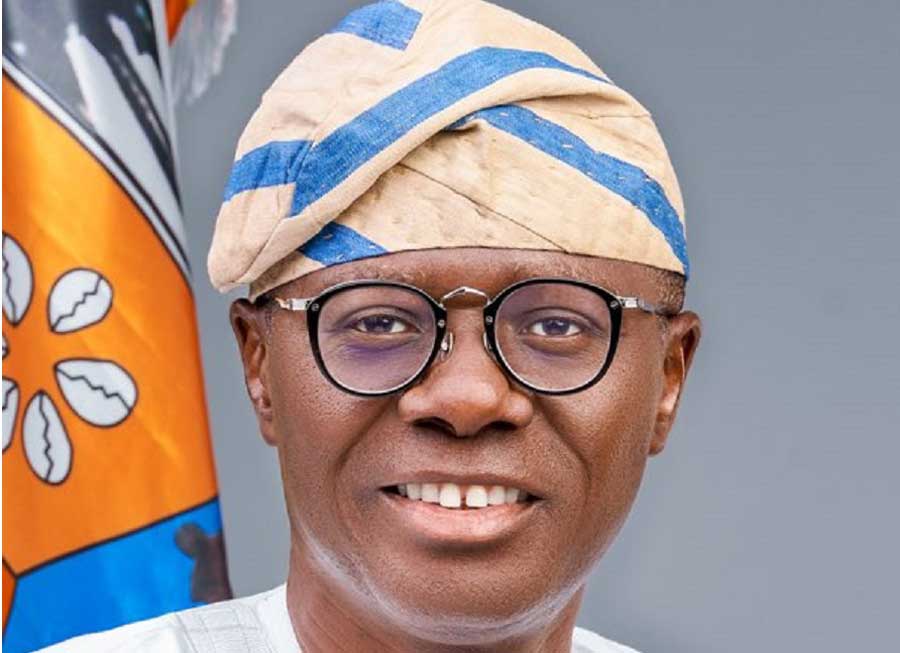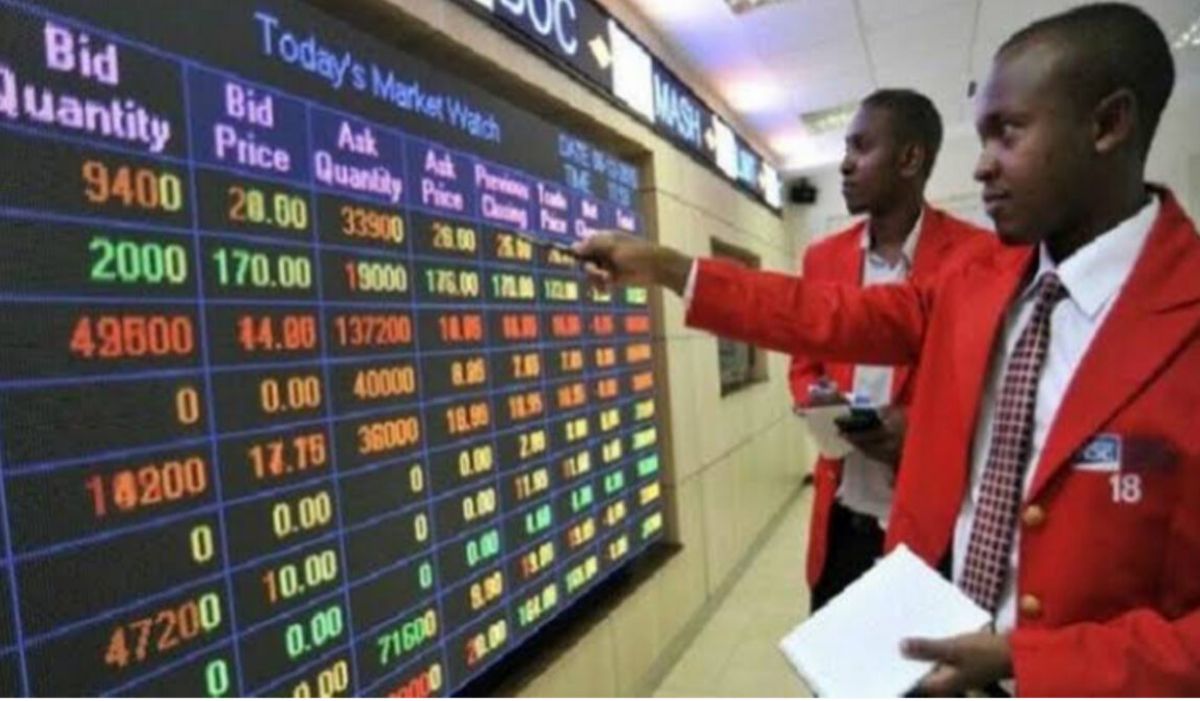Reforms, Recapitalization Drive Capital Market Boom, ASI Doubles In Two Years

Amid an environment marked by inflationary pressures, high interest rates, and structural economic challenges, Nigeria’s capital market has defied the odds to emerge as one of the most vibrant segments of the economy under President Bola Tinubu’s administration.
Two years into his presidency, investor confidence has soared, propelling record-breaking performance in both the primary and secondary markets and reaffirming the Nigerian Exchange’s relevance on the global financial stage.
A Historic Surge in Market Performance:
When President Tinubu assumed office on May 29, 2023, the All-Share Index (ASI) of the Nigerian Exchange Limited (NGX)—a key barometer of stock market performance—stood at 52,973.88 points. As of May 27, 2025, the ASI had skyrocketed to 111,606.22 points, marking a staggering gain of 110.68 percent in just two years. This explosive growth in equity prices translated into significant wealth creation for investors and confirmed the stock market’s growing appeal amid an otherwise challenging economic climate.
The NGX delivered a full-year return of 45.90 per cent in 2023, amounting to capital gains of ₦12.81tn. The momentum continued into 2024 with an average return of 37.65 per cent, resulting in an additional ₦15.41tn in investor wealth. These back-to-back stellar performances placed Nigeria among the world’s top three performing stock markets during this period.
Market Confidence Bolstered by Reforms and Stability
A key factor underpinning the capital market’s robust performance has been investor confidence, which has remained remarkably strong despite rising inflation and policy-induced volatility. Analysts and market operators attribute this resilience to several policy actions and reforms initiated by the Tinubu administration.
The peaceful transition of power following the 2023 general elections created a stable political environment, while decisive economic measures, such as the removal of fuel subsidies, the floating of the naira, and the harmonization of foreign exchange rates—signaled a break from the past and a commitment to market-oriented reforms.
Though initially painful, these actions restored fiscal credibility and attracted renewed interest from both domestic and foreign investors.
Capital Formation and Primary Market Expansion:
Another key development during Tinubu’s first two years in office was the revival of the primary segment of the capital market. Between January 2024 and April 2025, the Securities and Exchange Commission (SEC) approved capital raising activities totaling ₦4.12tn. In 2024 alone, ₦3.68tn was raised through new issues, the bulk of which were equity-based. This reflects a notable shift in investor preference toward equities, with ₦3.62tn raised through equity offerings and ₦59.82bn through fixed-income instruments.
The capital raising surge was driven by two primary factors which are the Central Bank of Nigeria’s mandatory recapitalization directive for banks, and refinancing efforts by companies adversely affected by the floating exchange rate. Many of these firms turned to the capital market to restructure liabilities and shore up operational capital.
Within the first four months of 2025, the SEC had already approved an additional ₦446.38bn in new issues, including ₦265.90bn in fixed-income and ₦180.48bn in equity instruments. These figures highlight a strong and sustained momentum in the market’s capital formation capacity.
Consolidation in the Corporate Space
The past two years also witnessed increased merger and acquisition (M&A) activity, reflecting a wave of corporate restructuring and strategic repositioning. In 2024 alone, the SEC approved 11 M&A transactions valued at ₦320.36bn. The largest deal involved the acquisition of a 58.02 percent equity stake in Guinness Nigeria Plc by N Seven Nigeria Limited for ₦103.7bn. These transactions not only injected liquidity into the market but also demonstrated the increasing sophistication of Nigeria’s corporate finance landscape.
Regulatory Reform And Institutional Strengthening:
President Tinubu’s administration has made concerted efforts to strengthen the regulatory framework governing Nigeria’s capital market. One of the most significant developments in this regard was the reconstitution of the SEC board and the appointment of Dr. Emomotimi Agama, a seasoned capital market professional and long-serving SEC official, as the new Director-General.
Further advancing this reform agenda, President Tinubu signed the Investments and Securities Act (ISA) 2025 into law, repealing the outdated ISA 2007. This landmark legislation introduced comprehensive changes aimed at improving investor protection, modernizing regulatory oversight, and aligning Nigeria’s capital market practices with international standards.
Among the key provisions of the ISA 2025 are the formal recognition of virtual assets—such as cryptocurrencies—as securities, bringing them under SEC regulation.
The Act also expands the definition of securities to include investment contracts, thereby encompassing a broader array of financial instruments. It introduces a new classification system for securities exchanges, distinguishing between Composite Exchanges, which can list all types of securities, and Non-Composite Exchanges, which are limited to specific categories.
The new law also prescribes severe penalties for promoters of fraudulent investment schemes and Ponzi operations, signaling a tougher stance on investor protection and market integrity.
Speaking on the new legislation, Dr. Agama described the Act as a transformative milestone that will empower the SEC to foster innovation, deepen the market, and reposition Nigeria as a globally competitive investment destination.
Expert Perspectives: Evaluating Market Performance:
Reviewing the state of the market since the emergence of new administration, some financial analysts in an exclusive interview with THE WHISTLER noted that the market recorded remarkable expansion in both the primary and secondary market segments over the past two years of the administration.
The Managing Director of Highcap Securities Limited, Mr. David Adonri commended the administration of President Bola Tinubu for fostering substantial growth in Nigeria’s capital market, noting a remarkable expansion in both the primary and secondary market segments over the past two years.
Adonri explained that the capital market operates through two main segments: the Primary Market, where issuers raise capital to finance operations, and the Secondary Market, which provides liquidity and investment opportunities for investors. “The capital market plays a pivotal role in wealth creation and job generation across the economy,” he stated.
According to him, the two years of President Tinubu’s administration have significantly revitalized both market segments. “Capital raising activities have surged to levels not seen since before the 2008 global financial crisis,” Adonri observed.
He attributed much of the Primary Market’s recent activity to the Central Bank of Nigeria’s mandatory recapitalization directive for banks, as well as refinancing moves by public companies impacted by the naira’s floating exchange rate.
“The Primary Market in this period is like a candle burning at both ends. Equity issuance has grown rapidly, while debt capital raising by both public and corporate issuers has also reached unprecedented levels,” he said.
Adonri described the growth of the Secondary Market as even more dramatic. “It is difficult to put into words the phenomenal rise the equities market has experienced since President Tinubu assumed office,” he said.
He highlighted that while the All-Share Index (ASI) appreciated by 20 per cent in 2022 to close at 51,251.06, it accelerated sharply in 2023, gaining 45.40 per cent to close at 74,502.58.
“What followed was even more astonishing — the ASI has now crossed the 100,000 mark, reaching 109,028.62. This kind of performance is unprecedented in the history of Nigeria’s capital market,” he added.
In a further sign of growing investor confidence, Adonri noted that for the first time in several years, foreign investor participation in the equities market surpassed that of domestic investors in the first quarter of 2025.
“These developments point to a full-blown market boom under President Tinubu’s leadership,” he said.
Adonri concluded by emphasizing the broader economic implications of the capital market’s performance. “If similar success can be achieved in tackling insecurity, Nigeria’s untapped productive potential could be mobilized to accelerate economic growth on all fronts,” he asserted.
The Group Chief Executive Officer of United Capital Plc, Mr. Peter Ashade expressed strong confidence in the resilience and growth potential of Nigeria’s capital market, describing it as a critical engine for economic development.
Speaking on developments and prospects within the market, Ashade noted that the Nigerian capital market has consistently received global recognition, with rankings placing it among the top-performing markets in the world over the past two years.
“Technically, the capital market has surpassed expectations. Globally, the Nigerian market has been acclaimed as one of the best. Two years ago, it was even ranked number one,” he said.
According to him, despite various economic policy challenges under the current administration, the capital market has demonstrated remarkable resilience and continues to deliver value to investors. “The market has consistently provided returns above inflation in recent years, which underscores its growing relevance and reliability,” he added.
Ashade also highlighted the market’s role in enabling capital formation, particularly for infrastructure development. He cited the federal government’s dollar-denominated bond issuance in 2023 as a milestone achievement. “Last year, the government aimed to raise $500m million through a Eurobond offer but eventually raised $900m, reflecting strong investor confidence. United Capital was a lead financial advisor in that transaction,” he revealed.
He emphasized that such transactions illustrate the capital market’s capacity to support Nigeria’s broader economic goals, including the federal government’s ambitious $1tn economic growth plan.
Looking ahead Ashade expressed optimism about the future of the capital market under the leadership of the new Director General of the Securities and Exchange Commission (SEC), Dr. Emomotimi Agama. “Dr. Agama brings a wealth of experience, having served across various segments of the market. His recent appointment is a game-changer,” he said.
He also commended the recent enactment of the Investments and Securities Act (ISA), describing it as a transformative step for the industry. “With ongoing reforms in structure, processes, technology, and capital formation, we are confident that the capital market will continue to lead Nigeria’s economic advancement,” Ashade concluded.
The Managing Director and CEO of Arthur Steven Asset Management Limited, and former President of the Chartered Institute of Stockbrokers, Mr. Tunde Amolegbe described the last two years under President Bola Tinubu’s administration as a period of bold and aggressive economic reforms—many of which have had significant implications for Nigeria’s capital market.
Speaking on the trajectory of the Nigerian economy, Mr. Amolegbe noted that while opinions may vary on the pace and intensity of the reforms, there is consensus on their necessity.
“It has been two years of aggressive reform through a series of policy changes. Some may see them as bold, others as overly aggressive,” he said. “The President has acted as though time is running out, prescribing all the economic medicine at once to revive a near-collapsing economy. While some may argue that a more gradual, sequenced approach would yield better results, no one can deny that the interventions were essential, given the state of the economy at the time he took office.”
He highlighted key policy decisions—including the floating of the naira, the removal of fuel and electricity subsidies, and tax reform efforts—as necessary steps that have boosted investor confidence.
“These policies were largely seen as accretive to the country’s fiscal outlook, and the capital market responded positively,” he explained. “The Nigerian Exchange’s All-Share Index (NGX ASI) has gained over 40 per cent in the past two years.”
Amolegbe further emphasized the return of foreign portfolio investors, the uptick in companies seeking capital through the market, and the positive impact of the Central Bank of Nigeria’s (CBN) bank recapitalization exercise, which has helped deepen market liquidity.
He also pointed to the government’s increased participation in the local fixed income market through bond issuances aimed at bridging infrastructure and budget deficits. Notably, Nigeria issued its first U.S. dollar-denominated domestic bond and its first Eurobond in over a decade during this period.
“The recent signing of the new Investment and Securities Act by the President is another milestone that could revolutionize the capital market in the years ahead,” Amolegbe said.
Despite these achievements, he acknowledged that challenges remain. “The capital market has certainly been a bright spot for this administration, but there is room for improvement,” he stated. “The pace of privatization and commercialization of underperforming public assets should be accelerated to unlock value. Reducing operational and financing costs for businesses must also be prioritized to boost production and curb unemployment.”
Amolegbe underscored the importance of addressing structural constraints such as electricity supply and insecurity—especially to boost food production and ease inflationary pressures. “While these reforms are essential, they have come with significant hardship, including a rising cost of living. The government must remain committed to easing these burdens as the reforms take root and work through the economy,” he concluded.
A Beacon of Resilience Amid Economic Headwinds:
Despite lingering economic challenges and a rising cost of living, Nigeria’s capital market has become a beacon of hope and resilience. It has provided a crucial platform for capital formation, investor wealth creation, and macroeconomic stability under Tinubu’s leadership. With ongoing reforms, enhanced regulatory capacity, and increasing global interest, the Nigerian capital market is well-positioned to play a central role in the country’s economic transformation and its journey toward achieving its $1tn economy ambition.
As reforms continue to mature and structural issues are addressed, analysts believe the capital market’s current trajectory can be sustained—solidifying its status as a key driver of inclusive and long-term economic growth in Nigeria.
Reforms, Recapitalization Drive Capital Market Boom, ASI Doubles In Two Years is first published on The Whistler Newspaper





